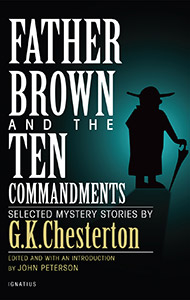 |
 |
 |
 |
Glory in the Ordinary: Why Your Work in the Home Matters to God by Courtney Reissig (Crossway 2017, $14.99)
Review by Annie Corser
In Glory in the Ordinary, Courtney Reissig challenges the rising cultural mindset that housework is mundane and meaningless. Although she writes from her experience as a stay-at-home mom, Reissig provides deep theology about work in the home that can be applied to all Christians.
“Christians work differently, in every kind of work, because we work for the Lord (not others) and we work hopefully (for the future),” Reissig writes.
Reissig confronts the sinful view of work and rest as being all about us; we often determine success and rest by what benefits us, fulfills us, or gives us glory. However, Reissig reminds readers that work and rest is all about loving God and loving our neighbor for the purpose of spreading God’s glory to the ends of the earth. Work serves others “because we have been transformed by grace alone, through faith alone,” she writes.
Father Brown and the Ten Commandments: Selected Mystery Stories by G.K. Chesterton, edited by John Peterson (Ignatius 2017, $16.95)
Review By S. Craig Sanders
When I purchased a copy of G.K. Chesterton’s complete Father Brown stories for $4 at Half Price Books several years ago, I later found two $1 bills tucked away as bookmarks. Half-price indeed. Chesterton’s short stories of the priest-detective are among his most delightful while also containing the wit and paradoxical insight readers of his more theological works are familiar with. But in this selection of mysteries, Father Brown and the Ten Commandments, editor John Peterson offers the best examples of why Chesterton’s detective is the antithesis to Sherlock Holmes.
“The key to Chesterton’s radical approach is that the criminal is not necessarily the worst sinner in the story, nor is his crime its guiltiest offense,” Peterson writes. “The priest is most interested in God’s Commandments, not in the legal code of the State.”
The 11 short stories and Peterson’s footnotes might be the best introduction to Father Brown for new and seasoned Chesterton readers alike.
Exalting Jesus in Proverbs by Daniel L. Akin and Jonathan Akin (Holman Reference 2017, $14.99)
Review by Caleb Shaw
Jonathan Akin, a Boyce and two-time SBTS graduate, joins his father and series editor, Daniel Akin, to provide the newest volume in Holman’s growing Christ-Centered Exposition series. Like the rest of the series, Exalting Jesus in Proverbs is a practical help that is perfect for preaching preparation, small-group teaching, and devotional study.
Instead of going through the entire book of Proverbs verse-by-verse, the father-son duo divide Proverbs into five topical sections. By separating the proverbs into sections like family relationships and the seven deadly follies, the Akins help the reader understand the broader context and theme of the selected text.
“Proverbs has very good news for us,” they write. “Wisdom is not primarily tips on how to live life; Wisdom is a person with whom you can be in a relationship — Jesus of Nazareth.”
By supplying main ideas, outlines, and discussion questions for each chapter, Exalting Jesus in Proverbs offers an accessible and practical tool that can benefit a pastor’s teaching.
12 Ways Your Phone is Changing You by Tony Reinke (Crossway 2017, $14.99)
Review by Andrew J.W. Smith
If you’re anything like me, you might find yourself tiring of the same heavy-handed criticisms of the digital age. It is fashionable to treat many modern technological advantages as burdensome, unhealthy, or even sinful.
A lot of this criticism is couched in nothing more profound than nostalgia (“I just love the way old books smell!”) and fails to admit there were many non-digital distractions and trivialities we filled our lives with 50 years ago. It also fails to recognize that the main problem of the digital age is not technology, but us.
“The key to balancing ourselves in the smartphone age is awareness. Digital technology is most useful to use when we limit its reach into our lives,” writes Reinke.
“The world will always expect technology to save humanity from its darkest fears, and to that end, it will submit more and more of itself to breaking innovations. But by avoiding the overreach of these misdirected longings for techno-redemption, we can simply embrace technology for what it is — an often helpful and functional tool to serve a legitimate need in our lives.”
Refreshingly, 12 Ways Your Phone is Changing You is not one of those approaches. Instead, this book observes the legitimate service and convenience smartphones offer our lives while critiquing the human tendency to abuse them. Christians especially can benefit enormously from a minimalistic approach, at least for a time, asking: What exactly do I use __________ for? Even asking that question is the first step toward healthy moderation in every phase of life, not just our digital usage.
Seeing technology as neither savior nor executioner, Reinke helps the reader practice a healthy posture toward our smartphones.




